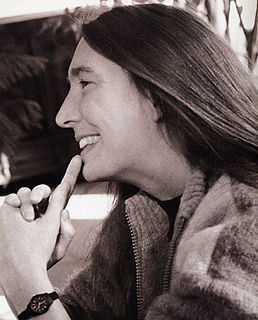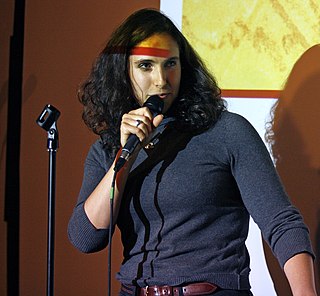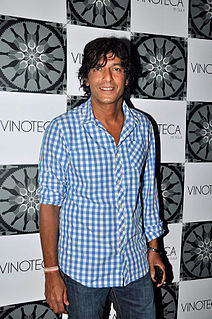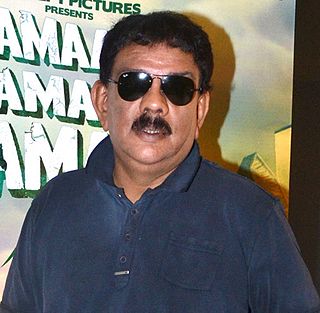A Quote by Noel Fielding
I've been writing the show with Nigel Coan, the director of 'Luxury Comedy', and Tom Meeten. Three's good. With two, you can lock horns a bit. On your own, you're not sure whether what you've made is any good. I don't know how people write novels. I would go mad.
Related Quotes
In the stand-up comedy top, there's room for everyone - if you're good, there's room for everyone. You'll put on your own show - no one casts you. You cast your own show as a stand-up comedian. When you get good at stand-up comedy you book a theater and if people show up, people show up. If people don't show up, people don't show up. You don't have a director or a casting agent or anybody saying if you're good enough - the audience will decide.
There were a lot of lessons of production to be learned. On the page, the biggest thing you learn on any TV show is how to write to your cast. You write the show at the beginning with certain voices in your head and you have a way that you think the characters will be, and then you have an actor go out there, and you start watching dailies and episodes. Then, you start realizing what they can do and what they can't do, what they're good at and what they're not so good at, how they say things and what fits in their mouth, and you start tailoring the voice of the show to your cast.
It used to be that you would go into a writing program and what you would learn was how to write a short story. You would pick up the magazines and you would be taught from the magazines how to write a short story. Nowadays student writers are learning to write novels because that market is gone, so the ones who are drawn to the form are doing it really for reasons of their own and that's really exciting.
Go where the pleasure is in your writing. Go where the pain is. Write the book you would like to read. Write the book you have been trying to find but have not found. But write. And remember, there are no rules for our profession. Ignore rules. Ignore what I say here if it doesn't help you. Do it your own way. Every writer knows fear and discouragement. Just write.The world is crying for new writing. It is crying for fresh and original voices and new characters and new stories. If you won't write the classics of tomorrow, well, we will not have any.
I met a young woman the other day, and she said, what advice would you have for a writer, and I said it would be to work every day... Your job is to write. The rest of it will take care of itself. But, generally, it seems ... you know how that is, you meet people and they have a talent for self-promotion. Those are the pushy people. And you know their writing's not going to be any good, because that's not their talent.
It is true that I got recognition. But however good the comedies are, nobody will accept a good comedy director as a good director. That is the sad part of it. Nobody knows who directed the 'Laurel and Hardy' movies. They know only Laurel and Hardy. Directors will never get a good name if they direct a comedy film.
When I had finished the book I knew that no matter what Scott did, nor how he behaved, I must know it was like a sickness and be of any help I could to him and try to be a good friend. He had many good, good friends, more than anyone I knew. But I enlisted as one more, whether I could be of any use to him or not. If he could write a book as fine as The Great Gatsby I was sure that he could write an even better one. I did not know Zelda yet, and so I did not know the terrible odds that were against him. But we were to find them out soon enough.


































